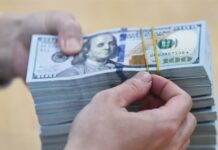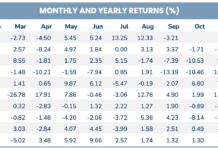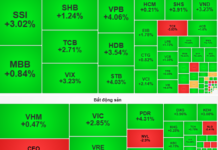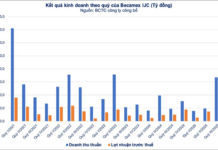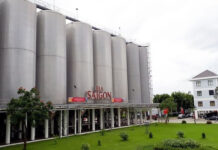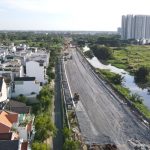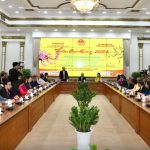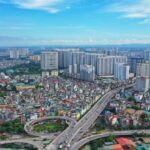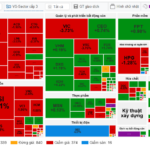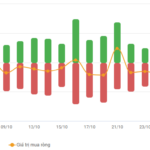On July 5, the People’s Court of Ho Chi Minh City sentenced eight defendants in a case involving Sai Gon Real Estate Corporation – a limited liability one-member company (Resco) – on charges of violating regulations on the management and use of state assets, resulting in loss and waste.
The court sentenced Nguyen Tin Trung, former Chairman of Resco’s Members’ Council, to five years and six months in prison, and Nguyen Phuoc Ngoc, former Chairman of the Members’ Council of Housing Management and Trading Company – a limited liability one-member company of Ho Chi Minh City and former General Director and Chairman of Resco, to four years and six months in prison.
Tran Cong Duc and Do Van Phuc, former members of Resco’s Members’ Council, were each sentenced to three years and six months in prison. Vo Huu Hai and Hoang Hai Dang, also former members of the council, received suspended sentences of three years each.
Nguyen Thi Thuy Hang and Nguyen Dinh Phu, former deputy general directors of Resco, were given two-year suspended sentences.
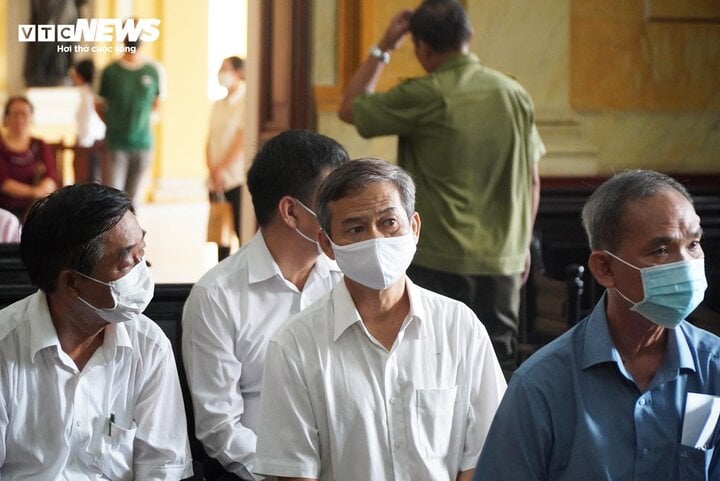
The defendants in court.
Regarding civil liability, the defendants were ordered to compensate for the loss of over VND 3.9 billion (approximately $167,000) caused by the transfer of two properties located at 289/18 Ly Thuong Kiet and 682 Hong Bang streets. The defendants had already paid VND 3.5 billion ($149,000) to the investigating agency, and the court recognized their voluntary compensation for the two properties, leading to the cancellation of the restriction on these properties.
Additionally, the court accepted the request of Sai Gon Real Estate Company No. 5 to return over VND 44.1 billion ($1.9 million) to Resco as the difference in the transfer price. As a result, the loss incurred by Resco has been recovered, and the defendants were not required to compensate for the loss related to the Binh Dang property.
According to the indictment, in 2010, Sai Gon Real Estate Corporation was transformed into Sai Gon Real Estate Corporation – a limited liability one-member company, with the Ho Chi Minh City People’s Committee as its owner.
In the same year, the People’s Committee approved the policy of assigning Resco to implement the project on compensation, site clearance, and resettlement for the Rach U Cay project. Resco was permitted to use all the money from changing the purpose of 15 land plots for offsetting investment capital for the first phase of the Rach U Cay project instead of paying it to the city’s budget.
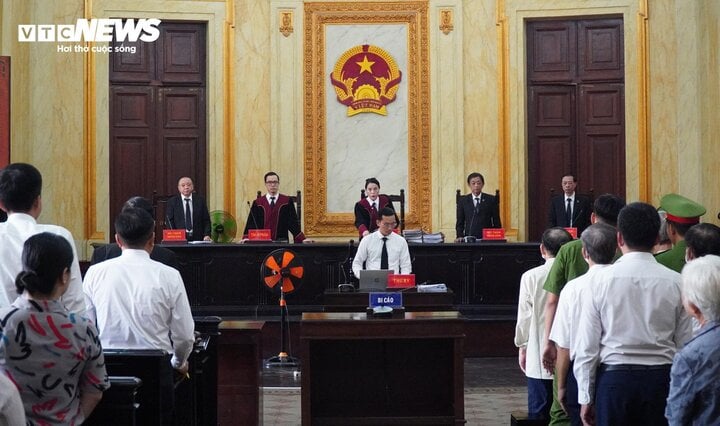
Court hearing scene.
In January 2013, Resco sent a written proposal to the People’s Committee, suggesting that the company be allowed to transfer the land use rights and ownership of the land plots to its member units to offset the investment capital for the first phase of the Rach U Cay project. The People’s Committee agreed to this proposal.
During 2012-2016, the People’s Committee approved the land use fee and handed over 10 out of 15 land plots with changed purposes for construction according to the city’s planning. However, Resco did not implement the project but transferred these 10 land plots.
Specifically, three land plots, including 299/18 Ly Thuong Kiet, Binh Dang in District 8, and 682 Hong Bang in District 11, were established by the People’s Committee as state-owned property. Nevertheless, after receiving these land plots, Resco did not proceed with investment, business, or construction but transferred them to companies that were not its members without going through an auction.
Resco transferred the land plot at 299/18 Ly Thuong Kiet to Real Estate Joint Stock Company No. 7 (in which Resco holds 20% of the capital) for VND 38.2 billion ($1.6 million). The land plot at 682 Hong Bang was transferred to Nam Viet Construction and Real Estate Joint Stock Company (with 20% capital from Resco but not a member unit) for VND 22.2 billion ($950,000). The land plot in Binh Dang, District 8, was transferred to Saigon Commercial Construction Company Limited for VND 90.9 billion ($3.9 million).
According to the valuation conclusion dated April 27, 2022, the land plot at 299/18 Ly Thuong Kiet was valued at VND 40.4 billion ($1.7 million), resulting in a loss of VND 2.1 billion ($90,000) at the time of transfer. The Binh Dang land plot in District 8 was valued at over VND 132.3 billion ($5.7 million), causing a loss of more than VND 41.4 billion ($1.8 million) at the time of transfer. The land plot at 682 Hong Bang was valued at over VND 24 billion ($1 million), resulting in a loss of over VND 1.8 billion ($77,000) at the time of transfer.
The defendants, as members of the Members’ Council, the Board of Directors, the Supervisory Board, and the Head of the Planning and Business Department of Resco, directly managed state assets. However, due to different motives and purposes, they committed violations in the transfer of the above three land plots, leading to a loss of more than VND 45 billion ($1.9 million) for Resco.
After Resco transferred the above three land plots, the Ho Chi Minh City Land Registration Office proceeded to update the land use certificates for Real Estate Joint Stock Company No. 7, Nam Viet Construction and Real Estate Joint Stock Company, and Saigon Commercial Construction Company Limited. These companies then transferred the land plots to other individuals. Currently, these land plots are no longer under state management.
Regarding the transfer of the remaining seven land plots by Resco, the investigating agency did not initiate criminal liability because the valuation results showed no price difference, and there was no loss of state assets.
During the investigation process, the defendants and their relatives voluntarily paid more than VND 3.5 billion ($150,000) to compensate for the damage.
2023 Remittances Surpass Half of Ho Chi Minh City’s Budget Revenue
As part of the Homeland Spring 2024 program in Ho Chi Minh City, this morning (2/2), the overseas Vietnamese delegation had a tour of the City Hall and met with city leaders.





